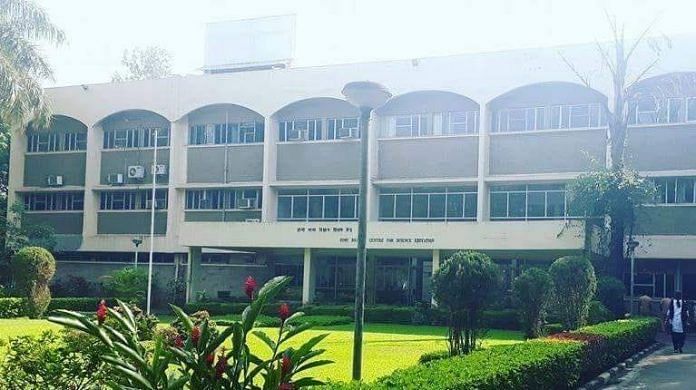A group of scientists from Mumbai are tracking fallacies peddled as fact and then debunking them.
Mumbai: The only thing the three scientists wished to do was question the claim that donkey urine and mercury powered ancient planes. But they were threatened with eviction.
The setting was a conference on ‘viman shastra’ held in Mumbai Sunday, which had as speakers an aeronautical engineer and a former director of the Defence Research and Development Organisation.
The three scientists were members of a band of myth-busters out to defend science against the fallacies routinely peddled as fact.
Aniket Sule, Rohini Karandikar-Dange and Satatkshi Goyal of the Homi Bhabha Centre for Science Education (HBCSE), Mumbai, are three of at least 30 scientists, researchers and academicians crusading for the cause.
The others, Sule said, are from the Tata Institute of Fundamental Research (TIFR), IIT-Bombay, the Centre for Excellence in Basic Science and the HBCSE. Many school and college teachers and members of NGOs too have come on board, he added.
Also read: Two IIT-Bombay scientists are changing the way the world looks at mist
Talking about Sunday’s conference, Sule said, “A large section of the audience stopped us from asking questions, saying they had come here to listen to the speakers and not our questions.”
One of the two speakers was open to questions, but that does not mean he was willing to answer them,” he added. “The audience and the organisers threatened to have us removed.”
The idea that the science community needs to step up to fight faux science first came to Sule on 20 August, 2013, the day rationalist Narendra Dabholkar was killed.
The prospect that someone was murdered because of his efforts to increase the scientific temper in society, he realised, was alarming.
The network of scientists Sule is part of takes note of unfounded statements made by people in positions of influence and attempts to question and debunk the claims.
“I am not actively looking for opportunities for activism, but there are some statements that you just cannot let pass,” said Sule.
“Earlier, these were on the fringe, but we have realised that if we keep ignoring them, many people gradually start seeing these statements as the truth,” he said. “We have to make our dissent very clear to the public, and after that it is their choice what to believe.”
Fighting ignorance, one myth at a time
Earlier this year, junior HRD minister Satyapal Singh, a member of the Bharatiya Janata Party (BJP), said Charles Darwin’s ‘Theory of Evolution’ was “scientifically wrong” and needed to be purged from school and college curricula.
Sule and a few other scientists immediately started a signature campaign and shot off a letter to the ministry challenging Singh’s statement. The ministry, they said in the letter, needed to clarify its stand on Darwin’s theory and its policy on teaching the theory in schools and colleges.
As chairman of the public outreach committee of the Astronomical Society of India, a body of professional astronomers, Sule has also tried to refute the popular belief that one shouldn’t eat during an eclipse.
The committee has been asking people to eat during eclipses and post pictures on social media with the hashtag ‘#Eclipseeating’.
On 20 August, addressing a public lecture at TIFR on the ‘National Scientific Temper Day’, he attempted to bust several other myths, including that Ganpati was proof of plastic surgery’s prevalence in ancient India and internet existed in the times of the Mahabharata.
He also spoke about the viral social media forwards that urge people to switch off their phones at night for certain hours “because the planet will be highly radiated, and cosmic rays will cause damage”, before debunking it.
Also read: Why the physics community has lost interest in breakthrough discovery
‘For a clear conscience’
Sule said social media had played a big role in giving legitimacy to pseudoscience.
“Social media has changed the game completely,” Sule told ThePrint. “Since people have equal access to information, it automatically translates to equal influence, and you have to keep communicating that not everything that stated on the internet is true.”
He added that the political climate, “not just in India, but the entire world”, was not helping.
The world has a history of veering towards the left and the right at different points of time, he said. The prevalent trend in many countries today, Sule added, was that a large section of society wanted to veer towards concepts that strengthen the sentiment of nationalism.
“India is just part of that trend,” Sule said. “These trends are cyclical, but the damage that they do last generations. We have to worry about that.”
Sule admitted that the group of 30 myth-busters is up against a much bigger enemy, but he said it was OK.
“Our thing is that, our conscience should be clear that we, as scientists, have done our bit,” he added.




What a wonderful initiative ; if only more and more celebrities could lend their names to such a cause.
But then , they will need to contradict none less than the PM of our country , and who dares do that ?